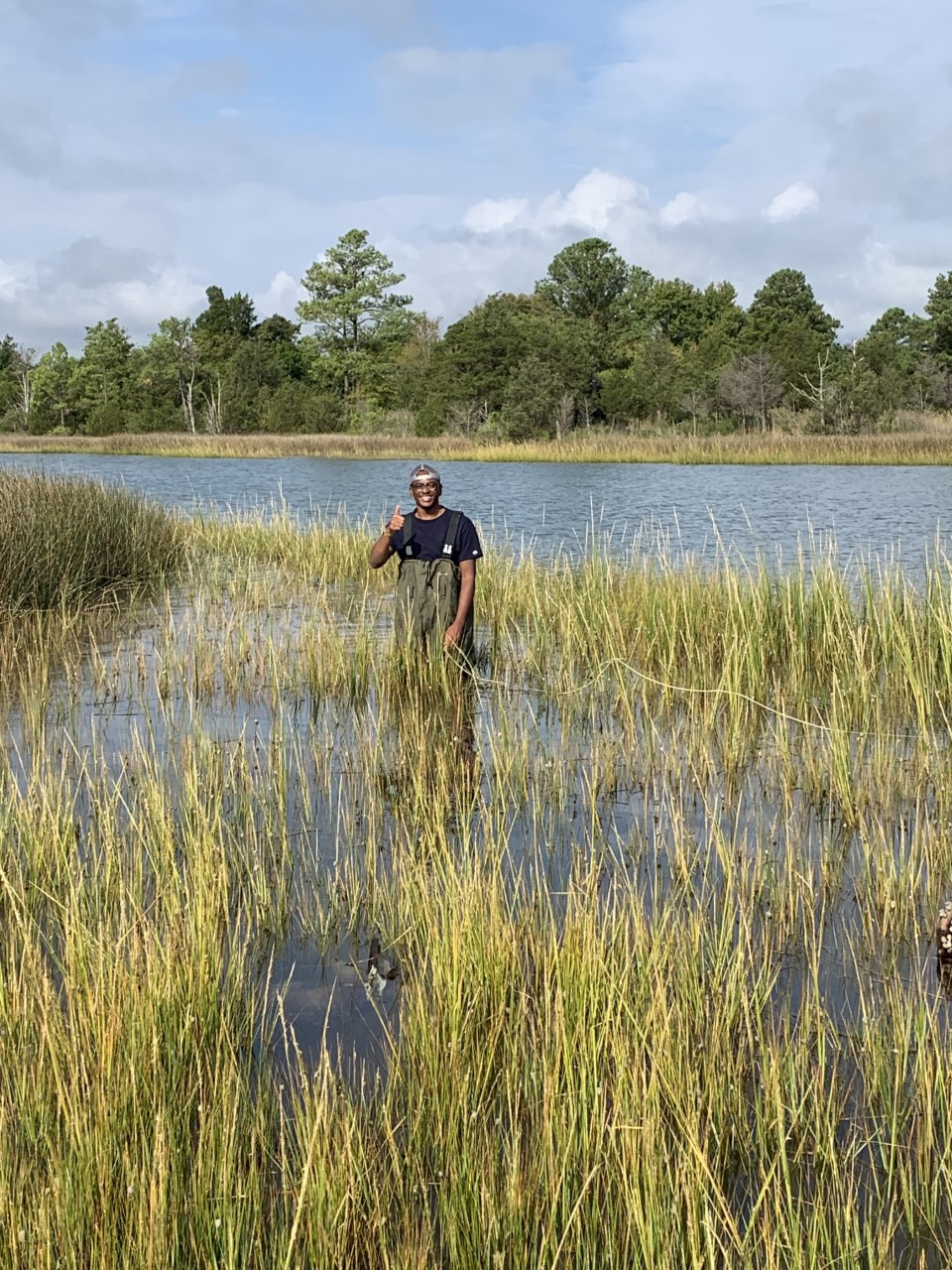Andrew Wrench, a first-year PhD student in the Integrated Toxicology and Environmental Health Program (ITEHP), is passionate about better understanding human health disparities. His research interests are heavily rooted in human health, specifically the contribution of pollutants and other toxicants in the development and worsening of cancer. He hopes that better understanding how these variables affect health outcomes can also help approach the issue of health disparities.
Why did you apply to your PhD program at Duke? What set it apart from other schools when you were applying?
Duke’s program drew me in for a lot of reasons, one of them being the environmental school existing as its own independent school, with its own resources and faculty. To me, it showed a serious investment by Duke as a whole into environmental health topics, whereas a lot of similar research topics elsewhere are those you’ll find, maybe, a handful of (Principal investigators) working on. You can get really specific in your research topic here. At the same time, however, I have a lot of experts available and there’s a lot of labs I have access to, so I don’t worry about lack of exposure to other fields! I know even within my cohort we all have very different and specific research interests and I think that’s a beautiful thing!
What do you hope to achieve with your research and this degree?
I’ve always thought I wanted to go into academia, but I’m still figuring out the path that works for me. I do know that I value mentorship and teaching, so I would at least like to lecture on topics related to environmental health, and potentially get some perspectives involved in environmentalism that might not be traditionally represented.
Could you describe your sense of community within the Nicholas School?
I think the sense of community within the Nicholas School of the Environment is fantastic! Outside of having so many brilliant minds to bounce ideas off of within the school, there are plenty of social events to get to know people and make friends outside of the lab as well. You can always find people studying similar things hanging out in between classes, so you don’t have to pick between a productive study environment and having access to your colleagues in between breaks.

